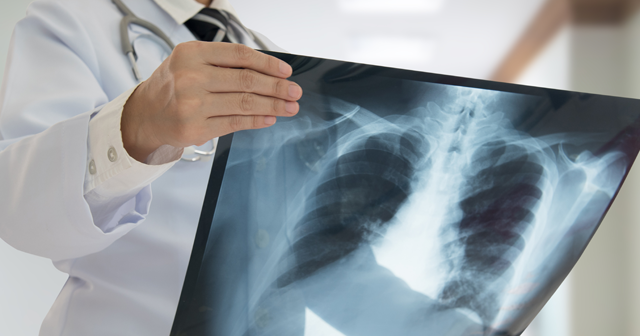Tuberculosis: Myths and Facts
Tuberculosis remains present in Singapore, with more cases of active tuberculosis (TB) among citizens reported in 2016 than the previous year. With 1,617 new cases of TB in 2016—a 9% increase from 2015—it’s understandable why residents are on alert for news and updates about this contagious disease and how they can be safe from it. To make you better informed, here are common misconceptions about TB and the truth behind them.
Myth 1: TB occurs only in lower socio-economic groups
Fact: The bacteria that causes TB can be contracted by anyone, although certain group of people, such as people with compromised immune systems, inmates, the homeless, elderly and immigrants, are at greater risk, because of health problems that they are prone to because of their conditions. Individuals who come in contact with these groups are also at an increased risk of contracting the disease.
Myth 2: Being vaccinated with BCG means you’re safe from the infection
Fact: The only accepted benefit of the Bacilli Calmette-Guerin (BCG) vaccine is protection of children from more serious types of TB. The benefits it has on adults is largely contested and many experts believe that it provides no protection at all. Despite the adoption of BCG vaccination in many countries, a significant number of TB cases from vaccinated patients still exists.
Myth 3: Tuberculosis is an early sign of development of lung cancer
Fact: While TB—among many other diseases—can cause damage to the lungs, the first does not necessarily lead to the other. There are various causes of lung cancer, such as smoking and even inhaling second-hand smoke. Long-time smokers have a considerably higher risk of developing lung cancer than those diagnosed with TB.
Myth 4: You can pass on Mycobacterium through kissing.
Fact: Mycobacterium tuberculosis, the bacteria that carries the disease, is airborne and transmittable only through fine respiratory droplets from someone with TB. Although the disease is likely to be transmitted to people with prolonged and close contact with infected individuals, the bacterium cannot be spread by sharing items like eating utensils or by physical contact alone.
Myth 5: Every person with TB is contagious
Fact: Most infected people have strong enough immune systems to encapsulate the bacterium (at least in its early stage), so the infection remains dormant. However, its dormant state can develop into an active state any time. Certain factors, such as being diagnosed with HIV, can increase the risk of making the TB case active. Only about 5% of TB cases become active in the first two years of getting the infection, with the same percentage becoming active two years after a diagnosis.
More About Tuberculosis
Can TB affect other parts of the body?
TB often develops in and affects the lungs, but it can also affect other internal organs, such as the bones and joints, lymph nodes, intestines, kidneys, pericardium (the covering of the heart), liver and even the brain.
What symptoms to lookout for?
Patients diagnosed with (active) TB may complain persistent coughing with blood, chills and fever, night sweating, loss of weight and appetite and low stamina.
What should be done if you notice any symptoms?
See a specialist right away. He may order a chest radiograph to check for abnormalities in your lungs. If the doctor finds unusual elements in the result, he may also ask you to have a sputum test to confirm the abnormality. The specimen collected will be examined under the microscope to see if there’s any presence of the bacteria. The same specimen is also cultured to check for growth of Mycobacterium, which results usually take up to two months to be ready.
How will you be treated in case of a positive diagnosis?
Tuberculosis can be treated with a combination of prescribed drugs, with the treatment program often lasting for about six months. More advanced or complex cases will take longer. As long as a patient follows his doctor’s orders and take his medications as prescribed, the disease can be cured.
Tuberculosis is a serious condition, and therefore requires immediate and close medical attention. However, a TB diagnosis should not cause grave alarm as today’s medical advancements has made it manageable and curable.


